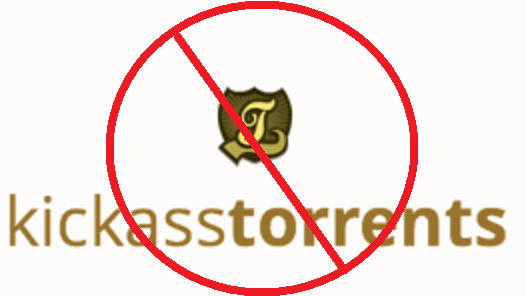Hey, Australia! The music industry’s major labels are jack of you illegally downloading their shit and now they’re taking matters into their own hands.
Universal Music Australia, Warner Music Australia and Sony Music Entertainment Australia have joined forces with APRA AMCOS and rights management company Alberts Music to file a copyright lawsuit, with the goal of getting popular piracy site Kickass Torrents blocked from local ISPs.
According to The Music Network, the companies are acting under Section 115A of the Copyright Act 1968 (Cth) in a bid to have the torrent hub and its affiliated proxy sites banned Down Under.
“Last year, ARIA welcomed the federal government’s passing of Section 115A as a critical element in supporting the legitimate digital content market in Australia,” ARIA chief executive Dan Rosen said in a statement.
“ARIA and its members believe that this case will be an important step to ensure Australians are accessing their music from sites which contribute to our local industry, so that we can continue investing in talent to make the music we all love.”
And while their intentions seem noble, Internet Society Of Australia chief executive Laurie Patton reckons it won’t amount to much.
“The simple fact is that blocking Internet sites will not solve the problem,” Patton said. “It’s been tried without success elsewhere. We need to educate people that breaching copyright is wrong and potentially defrauds the very artists they are listening to and we need to encourage them to use legitimate sites.”
But APRA Board chairwoman Jenny Morris OAM seems to think it’s more about the principle of the thing.
“Illegal offshore sites like Kickass Torrents show a complete disrespect for music creators and the value of music,” she said. “Australian music fans already have access — for free if they choose — to the world’s repertoire of music via more than 20 legitimate, licensed online music services.”
“Blocking access to sites like Kickass Torrents is all about supporting those services and allowing the writers whose songs are available on them to be paid for their work.”
Now look, nobody’s debating the fact that music piracy hurts the local music economy, but it’s hard to legitimately argue that streaming does much more to benefit the artist.
The Australian music industry might feel spurred on in their crusade against illegal downloading by the fact that their revenue just went up for the first time in three years, thanks largely to a widespread uptake in streaming services like Spotify.
Still, it’s worth noting that close to none of that money is going to the artists themselves, whose meagre income from music streaming royalties has been well documented and widely criticised.
Which probably has a lot to do with why some of our country’s biggest bands are being forced to hock their shit on eBay, resort to ongoing fan donations or else quit completely in response to the problem of not even making the Australian minimum wage in spite of their huge national and international success.
While the question of how to improve this situation is far from an easy one, it’s hard not to feel like the majors should also be investing time, money and effort into trying to innovate a new model for music consumption that engages fans while maximising profits for both the label and the artist.
Meanwhile, spare a thought for how blocking Kickass.to is going to affect Australia’s Game Of Thrones fans.












